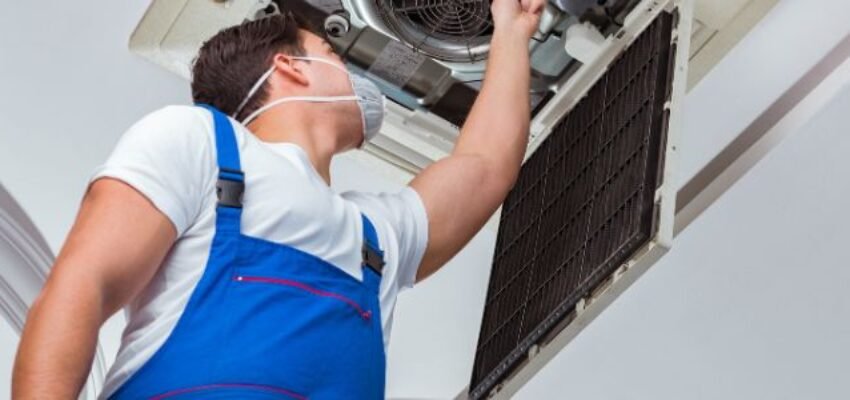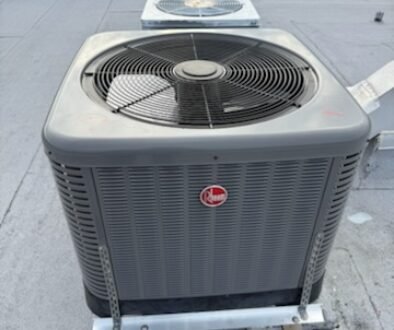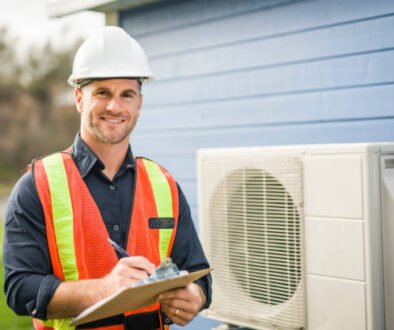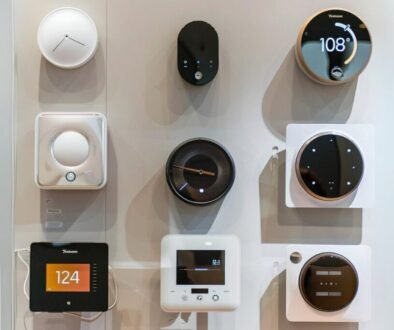12 Best HVAC Maintenance Tips Every Homeowner Should Know

Published December 29, 2023
As a homeowner, one of the essential systems you need to take care of is your HVAC system. Proper maintenance will guarantee that it runs smoothly and efficiently. You’ll also prolong its life. You avoid costly repairs. More importantly, you save money on your energy bills.
Home heating and air conditioning systems account for more than half of household energy consumption. It will also cut thousands of dollars in your account to replace.
Keep on reading as we’ve prepared the top 10 HVAC maintenance tips.
What Is HVAC Preventative Maintenance?
HVAC preventative maintenance is a set of routine checks, cleanings, and services. It is performed on your heating, ventilation, and air conditioning system. It keeps it from running efficiently and safeguards future problems or breakdowns. The purpose of it is to extend the life of your HVAC system. It also helps lessen energy consumption. Finally, it ensures a comfortable indoor environment.
What Parts of Your AC Need Maintenance?
Several parts of your air conditioning unit demand regular maintenance. It is critical in ensuring optimal performance. Here are some key components that usually need attention:
1. Air filters
These should be checked regularly and replaced as needed. A clean filter is everything. It betters the efficiency of your AC system. It also boosts the quality of your indoor air.
2. Coils
Both the evaporator and condenser coils can accumulate dirt over time. In fact, it lessens the system’s ability to cool your home. These then should be cleaned periodically.
3. Coil fins
The aluminum fins on the evaporator along the condenser coils can easily bend. They can block airflow. A fin comb can be employed to straighten them.
4. Condensate drain
Over time, the drain can become clogged with dust and debris. Regular cleaning can safeguard against water damage. It can also maintain indoor humidity levels.
5. Thermostat
Inspect your thermostat to make sure it’s working correctly. It should keep your home at the right temperature.
6. Fan blades
Debris can also collect on the fan blades. Cleaning them will improve airflow and efficiency.
7. Ductwork
Leaks in ductwork can decrease the efficiency of your system. It also raises your energy costs. It’s vital to have your ductwork inspected and sealed if necessary.
8. Refrigerant levels
Too much or too little refrigerant can make your system less efficient. Checking and adjusting them is a job for a professional.
9. Electrical connections
As time passes, connections can loosen. Wires and terminals can also corrode. An HVAC professional should check these components during a routine service visit.
Top 12 HVAC Maintenance Tips for Homeowners
1. Arrange consistent maintenance checks.
Just with another piece of machinery, your HVAC system requires regular maintenance. It is what keeps it running smoothly. A qualified technician can look for any potential problems. They will make the necessary repairs. Many HVAC companies also provide service contracts that include it.
Skipping these checks can lead to more substantial issues. Also, expensive repairs. These are the things the expert will do during a routine maintenance check:
- Look into the thermostat to make sure it’s working properly
- Sanitize or replace filters
- Lubricate moving parts
- Examine the refrigerant level
- Listen for unusual noises
- Inspect the condenser and coils
2. Change your filters regularly.
One of the most straightforward and critical HVAC maintenance advice is changing your air filters regularly. A dirty filter impedes airflow. It causes the system to work harder. Thus, it decreases efficiency and increases energy costs. Filters should be altered every few months. In other cases, as directed by the manufacturer.
Worn-out filters can also be a fire menace. Be careful.
3. Do a visual inspection of the HVAC system.
Examine the system monthly when changing the filter. Doing so will uncover potential problems. Check out the thermostat, inside unit, and outside unit. Also, don’t forget registers and returns.
You might also want to check the following:
- Check the battery status on the thermostat
- Examine the condensate system. It will help to know if it’s draining properly
- Guarantee that the filter access and cabinet door are securely closed
- Ensure the flue system is securely attached and intact
- Guarantee that all registers and returns are unblocked and open
- Check all registers for signs of mold
- Ensure the outdoor unit is level. Use rot-proof shims to level it if it is ideal.
4. Maintain the area around your HVAC unit clean.
The space around your HVAC unit should be clean. It must be free of debris. Maintaining cleanliness will guarantee good airflow. It is also the key to preventing the unit from overheating.
Make sure the outside of the system is free of leaves, sticks, and other debris. Regularly sweep up any dirt or grass. In addition, clean the exterior coil at least once yearly.
5. Leave the air vents open.
Contrary to the usual and popular opinion, closing the air vents does not save energy costs. What holds true is it might be one of the worst things you can do to your heating and air conditioning unit. It can significantly increase the pressure load.
Upon closing the vents, you block off the cool air. You also lower the unit’s performance levels drastically. If you want maximum efficiency and to prevent overloading your air conditioner, keep all the vents open. Ensure they are free of possible obstructions to the airflow.
6. Put your HVAC unit at the optimal temperature.
While the temperature you put on the thermostat will largely anchor on personal comfort, many systems will have an optimum temperature level. One that ensures they will continue to use the energy efficiently.
Look at the owner’s manual to figure it out. You could also ask your service technician to assist you in finding the most energy-efficient temperature. Avoid fluctuating the temperatures too often. Doing so will make your HVAC unit work harder. As a result, it won’t be working as efficiently as it could be.
7. Change the batteries in your thermostat.
Some thermostats are hardwired. They may be into the home electrical system. Others are battery-powered. It would help to replace batteries at least once a year to prevent problems.
8. Seal the home from incoming drafts.
A standard individual thinks of stopping the air filtration during the cold months. Indeed, they don’t give much thought to the summer season. Any air leak within the home will rob you of your HVAC system’s full potential. To get the best outcomes, you should close the doors and windows and ensure a good weather seal on the home before you turn it on.
Put weather strips on the door. It can help to prevent the cold air from leaking out the door. You may also want to elevate to newer and more energy-efficient windows. It prevents cooling and heating through them.
The most usual places for drafts in the home include:
- Chimneys
- Windows
- Doors
- Attics and basements
- Electrical outlets
9. Sustain the carbon monoxide detector.
A carbon monoxide detector is an essential safety tool. It is especially true in spaces with combustion-based heating setups such as natural gas or fuel oil. In the case of an exhaust leak, impaired ventilation, excess gas flow, or other malfunction. The alarm could be a lifesaver.
These devices have an average working span of about seven years. Examine the carbon monoxide monthly to ensure it is working soundly. Plan on changing the batteries every six months.
10. Get a tune-up every year.
A yearly tune-up ensures your HVAC system performs in its optimum state. A technician will look into the unit for potential problems. They will perform necessary repairs and replacements. The exercise also aids in avoiding costly repairs down the road. It ensures that your system runs at its best. A yearly tune-up handles more than regular maintenance. For this reason, it is worth doing:
- A thorough inspection of the total heating and cooling system
- Cleaning and adjustment of all equipment
- Lubrication of all moving parts
- Examining refrigerant levels
- Examining ignition and safety controls
- Replacement of furnace filters
11. Monitor energy bills
Observing either a spike or gradual boost in energy consumption when usage is unchanged could be a sign of an issue. Arrange a service visit with your trusted heating and cooling company. They ought to check the system. Filthy filters, duct leaks, low refrigerant, failing parts, or others could be the culprit.
12. Consider total replacement
The standard lifespan of an HVAC system is between 15 and 25 years. Several factors can increase or cut that timeline. It will include the type of system, brand, and maintenance consistency. By maintaining your heating and cooling system diligently, you will maximize its working life. You will also sustain higher efficiency for a more extended period.
Tips for Identifying HVAC Maintenance Problems
1. Check vents for blockage.
Ensure that all the vents in your home are clear of dust, dirt, and other debris. All three may obstruct airflow.
2. Ensure power supply
If your HVAC system isn’t working, the first thing to check is whether it’s getting power. Check your circuit breaker and the switch on the unit itself.
3. Test thermostat settings
Incorrect thermostat setting. It might be another reason if your HVAC system isn’t maintaining the desired temperature.
4. Inspect air filters
Clogged or dirty air filters can impede airflow. It can also trigger your HVAC system to work harder than needed. It is best to clean or replace them every two to three months.
5. Perform a visual inspection.
Check for visible wear and tear, damage, or leaks. You can also be attentive to any unusual noises. Noise can indicate an issue, too.
6. Check for refrigerant leaks.
Leaks can cause your system to lose refrigerant. It decreases its cooling efficiency.
7. Inspect ducts
Leaky or dirty ductwork can trigger the HVAC system to lose efficiency. It could also introduce poor indoor air quality.

Frequently Asked Questions About HVAC Maintenance Tips
1. What are the four types of maintenance HVAC?
- Preventative Maintenance. This is a proactive form of maintenance. It involves regular inspection, cleaning, and servicing of HVAC equipment to safeguard potential issues from becoming serious problems.
- Corrective Maintenance. It involves repairing or replacing parts of the HVAC system that have broken down or malfunctioned.
- Predictive maintenance. It uses data-driven insights to predict when HVAC equipment may fail or demand service. It uses modern technology such as sensors and predictive analytics software.
- Reliability-centered maintenance (RCM). This more comprehensive approach focuses on optimizing the entire HVAC system’s reliability and performance.
2. What to expect during HVAC maintenance?
Inspection, cleaning, maintenance, filter check, replacement, and potential repairs.
3. Why is regular maintenance essential for HVAC systems?
Regular maintenance aids in prolonging the lifespan of your HVAC system. Catching minor issues before they become significant dilemmas is always ideal. In doing so, you prevent premature system failure.
4. What is PPE HVAC?
In the context of HVAC, PPE stands for Personal Protective Equipment. It is a gear that HVAC technicians wear. It aims to protect them from potential hazards they may encounter while working on HVAC systems.
Being aware of all the top HVAC maintenance tips can significantly benefit you. You should follow all of our thoughtfully curated advice to ensure you have an HVAC system that is optimal in performance and long-lasting.
Please share our article with other homeowners, too! They’ll appreciate this expert guide.

This Content Is Fact Checked
This content has undergone thorough fact-checking by our team of internal experts. Gain further insight into the editorial standards upheld on our website here.
South Florida HVAC Professionals
Snowflakes Air Conditioning has been providing professional HVAC services for over 10 years. We are committed to keeping your air conditioner running smoothly all year round. Our experienced technicians can handle anything from AC repair to sales and AC installation. Whether it’s time for an upgrade or just regular upkeep, we are a name you can trust for your HVAC needs. Contact us today for more information.

About The Author
Meet writer Rei Bayucca, an HVAC and construction industry enthusiast. Discover insightful articles designed to help you solve your most pressing problems. Rei can captivate you with expertly crafted content that will leave you hungry for more.



